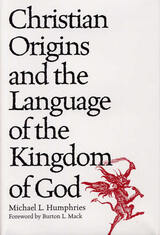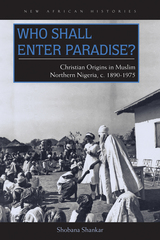
Traditionally, scholars have traced the origin of Christianity to a single source—the kingdom of God as represented in the message of the historical Jesus. Through a rhetorical critical analysis of one of the most important texts in early Christian literature (the Beelzebul controversy), Michael L. Humphries addresses the issue of Christian origins, demonstrating how the language of the kingdom of God is best understood according to its locative or taxonomic effect where the demarcation of social and cultural boundaries contributes to the emergence of this new social foundation.
The Beelzebul controversy exists in two versions— Q and Mark—and thereby allows the study to engage the import of the kingdom language at the point of juxtaposition between two distinct textual representations. This makes it possible to deal directly with the issue of the disparity of texts in the synoptic tradition. Humphries suggests that these two versions of the same controversy indicate two distinct social trajectories wherein the kingdom of God comes to mean something quite different in each case but that nevertheless they demonstrate a similarity in theoretical effect where the language contributes to the emergence of relatively distinct social formations.
Humphries establishes the Q and Markan versions of the Beelzebul controversy as relatively sophisticated compositions that are formally identified as elaborate chreiai (a literary form used in the teaching of rhetoric at the secondary and post-secondary level of GrecoRoman education) and that offer an excellent example of the rhetorical manipulation of language in the development of social and cultural identity.


Who Shall Enter Paradise? recounts in detail the history of Christian-Muslim engagement in a core area of sub-Saharan Africa’s most populous nation, home to roughly equal numbers of Christians and Muslims. It is a region today beset by religious violence, in the course of which history has often been told in overly simplified or highly partisan terms. This book reexamines conversion and religious identification not as fixed phenomena, but as experiences shaped through cross-cultural encounters, experimentation, collaboration, protest, and sympathy.
Shobana Shankar relates how Christian missions and African converts transformed religious practices and politics in Muslim Northern Nigeria during the colonial and early postcolonial periods. Although the British colonial authorities prohibited Christian evangelism in Muslim areas and circumscribed missionary activities, a combination of factors—including Mahdist insurrection, the abolition of slavery, migrant labor, and women’s evangelism—brought new converts to the faith. By the 1930s, however, this organic growth of Christianity in the north had given way to an institutionalized culture based around medical facilities established in the Hausa emirates. The end of World War II brought an influx of demobilized soldiers, who integrated themselves into the local Christian communities and reinvigorated the practice of lay evangelism.
In the era of independence, Muslim politicians consolidated their power by adopting many of the methods of missionaries and evangelists. In the process, many Christian men and formerly non-Muslim communities converted to Islam. A vital part of Northern Nigerian Christianity all but vanished, becoming a religion of “outsiders.”
READERS
Browse our collection.
PUBLISHERS
See BiblioVault's publisher services.
STUDENT SERVICES
Files for college accessibility offices.
UChicago Accessibility Resources
home | accessibility | search | about | contact us
BiblioVault ® 2001 - 2024
The University of Chicago Press









